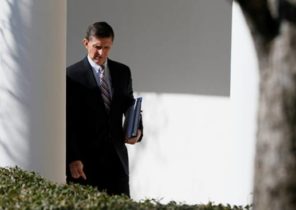
Kremlin channel unhappy that the verification of information for accuracy do they think people with Pro-Western views.
When Facebook announced that it plans to fight the spread of fake news, promoting sites that check facts for accuracy, he probably didn’t expect the call to respond to Russia Today.
But Kremlin channel (now RT) told BuzzFeed that he would like to the largest social network began promoting its new resource verification information. The goal is to fight the “fake” news on such topics as Russia and Aleppo.
Along the way, RT Facebook poses a difficult question: what if anyone who checks the facts for accuracy, is accused of bias? “We would like to be among the sources that will appeal to Facebook,” — said the representative of the channel.
She also said that many Western media sites that are engaged in the refutation of false information, come to the question is biased: “In many cases “the art of deception” will be reduced to “we do not agree with this view””.
New project RT — FakeCheck — began its work with a material that scattered on social networks picture of a girl was not done in Syria and taken from the music video; about the dubious motivations of the volunteer organization “White helmets”; and on fake web tweet threats to Donald Trump with the ISS. While most of the content corresponds to the foreign policy tasks of Russia.
Project RT in exposing fake news also thoroughly criticized the “recent posts” residents of the Eastern part of Aleppo, written in a time when Russian forces have teamed up with the Syrian government troops trying to retake the city.
FakeCheck warns: the Internet people “are often victims of falsehoods, propaganda and misinformation that passes for real news”. This criticism sounded in the address of the RT.
The channel has repeatedly been accused of bias and received a number of warnings from the British media regulator Ofcom after not provided “appropriate for a wide range of important points of view” in their reports about the conflict in Ukraine, as well as for “bias or misrepresentation” of Syria. Also BuzzFeed News published the material, devoted to recent concerns employees of British office RT in connection with a noticeable shift in political tone in the direction extremely right-wing populists.
The channel firmly adheres to the line that simply represents an alternative point of view and insists that the General line followed by the sites dealing with verification of facts, can be just as biased as the classic journalistic reports.
“Verifying facts is one-sided, — said the representative of the channel. We see our task is to inform the participants of the General debate, putting them that “there are other facts that should be considered””.
Facebook recently announced its intention to publish warnings in relation to certain publications which “are challenged by independent experts to verify the facts” by providing a link to an authoritative source for verification of facts.
This initiative will initially cover news that are completely wrong or “obvious intentional lie”. Facebook is not very keen to expose political publication of the leading parties, often provoking heated debate.
RT can also face the problem of eligibility for participation in the project, because all members of a test screening signed code of principles of the International network for verification of facts (International Fact-Checking of the Network (ICFN), while the majority of participants are respected news and media outlets such as ABC News and the Associated Press. Facebook did not respond to a request to comment on the question, would find it possible to accept RT as a partner for verification of facts.
However, the project RT FakeCheck has successfully taken up the rhetoric, very similar to what it sounds on the websites to verify the facts of Western agencies.
“Facts are the first victim of the information war, warns FakeCheck. In the modern abundance of sources and domination of social media streams among the delivery mechanisms of news, misinformation can spread like wildfire due to the fact that false reports, rumors and obvious lies treated as serious news.”
Instead, RT promises its readers to help “separate fact from fiction” as we “transition into postmenopau reality.”







